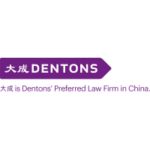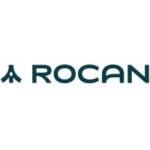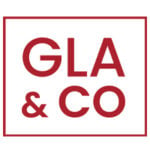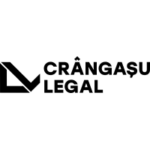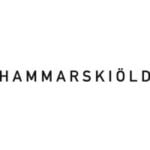-
Overview
Merger Control Legislation
In Greece, the merger control regime is included in Law 3959/2011 (Articles 5-10), as amended and in force, (“Greek Competition Act”). In addition to these provisions, the Hellenic Competition Commission (“HCC”) has issued Decision No 780/2022, which clarifies the requirements of the long and short notification forms (“HCC Merger Filing Guidelines”), as well as Decision 779/2022, which determines the content of the remedies form.
The Greek merger control regime is aligned with EU merger control, namely the Council Regulation (EC) No 139/2004 on the control of concentrations between undertakings (“Merger Regulation”), along with the Commission Consolidated Jurisdictional Notice under Council Regulation (EC) No 139/2004 on the control of concentrations between undertakings (“Commission Consolidated Jurisdictional Notice”) (and any other applicable legislation, notices, guidelines), in terms of mandatory filings, the prohibition of closing prior to clearance, the test of substantive assessment of concentrations, etc.
The Greek Competition Act has been recently amended by Law 5255/2025, published on November 28th, 2025. These amendments introduce changes to the merger control framework, notably the abolition of the thirty-day deadline within which the undertakings concerned were previously obliged to submit a notification of a concentration to the HCC (Art. 40 of Law 5255/2025, which amended Art. 6 of Law 3959/2011). Through this amendment, the Greek Competition Act is brought into full alignment with EU Merger Regulation, which does not set a fixed deadline for the notification of a concentration to the European Commission. In addition, the new legislation clarifies that the statutory review periods within which the HCC is required to assess a notified concentration do not begin, if the notification is incomplete or incorrect (Art. 41 of Law 5255/2025, which amended par. 11 of Art. 8 of Law 3959/2011).
The Greek Competition Act applies to transactions that constitute a concentration, within the meaning of the merger control regime, that meet the applicable turnover thresholds foreseen therein.
Competent Authorities
The HCC is the competent national authority for the enforcement of the Greek Competition Act. The Hellenic Telecommunications & Post Commission (“EETT”) is the exclusive competent authority to implement the Greek Competition Act (including merger control) in the telecommunications sector, according to Law 4727/2020, currently in force, and in the postal sector, according to Law 4070/2012.
Legislation Relating to Special Sectors
Although the Greek Competition Act applies in principle to all transactions and to all sectors, and the HCC is the competent authority to implement it, there are certain exceptions:
- with respect to concentrations relating to informative media, these are governed by both the Greek Competition Act and Law 3592/2007 on Media Concentration and Licensing, as amended and in force (the “Media Act”), while
- with respect to concentrations relating to certain telecommunication markets (including the markets for fixed and mobile telephony, for broadband access, and for internet services), although they are governed by the Greek Competition Act, they have to be notified before EETT.
-
Is notification compulsory or voluntary?
Under the Greek Competition Act, notification is mandatory if the statutory requirements are met. In particular, concentrations that meet the applicable financial thresholds must be notified before the HCC prior to their implementation and after the conclusion of the agreement or the announcement of the bid or the acquisition of a controlling interest (Article 6 para. 1 of the Greek Competition Act).
-
Is there a prohibition on completion or closing prior to clearance by the relevant authority? Are there possibilities for derogation or carve out?
Suspension of implementation of concentration (the standstill obligation)
Under the Greek Competition Act, there is a strict prohibition on completion (closing) prior to clearance by the HCC (“standstill obligation”) (Article 9 para. 1 of the Greek Competition Act). Therefore, until the HCC approves the concentration, the participating undertakings have a standstill obligation, i.e., they should abstain from any action that could be perceived as an implementation of the concentration and should continue to operate as distinct undertakings.
Implementing (in whole or in part) the concentration prior to the HCC’s clearance (“gun -jumping”) would amount to an infringement of the Greek Competition Act that may give rise to sanctions.
Exceptions: possibility of carve-out / derogation
The standstill obligation does not prevent the implementation of a public bid, purchase or exchange or the acquisition, via a series of stock exchange transactions in securities, which provides control of an undertaking, provided that:
- the transaction is duly notified to the HCC; and
- the acquirer does not exercise the voting rights attached to securities, except to preserve the full value of its investment, and only on the basis of a special authorisation granted by the HCC.
In addition, the HCC may, upon the parties’ request, grant a derogation from the standstill obligation (before or after the filing of the notification) in order to prevent serious losses to the undertakings concerned or to third parties. When assessing such requests, the HCC considers, inter alia, the threat to competition posed by the concentration. A derogation decision may impose conditions or obligations to safeguard effective competition and may be revoked in case the decision was issued on the basis of inaccurate and misleading information and/or the undertakings concerned commit a breach of any term or obligation attached to the decision (Article 9 paras 2 and 3 of the Greek Competition Act).
-
What types of transaction are notifiable or reviewable and what is the test for control?
The notion of “concentration”
The Greek Competition Act applies to transactions that constitute a concentration, within the meaning of the merger control regime and meet the applicable turnover thresholds (Article 5 of the Greek Competition Act). A concentration shall be deemed to arise where a change of control on a lasting basis results from:
(a) the merger (by any means) of two or more previously independent undertakings or parts of undertakings; or
(b) the acquisition, by one or more persons already controlling at least one undertaking, or by one or more undertakings, whether by purchase of securities or assets, by contract or by any other mean, of direct or indirect control of the whole or parts of one or more other undertakings.
(c) the creation of a joint venture performing on a lasting basis all the functions of an autonomous economic entity (that is, a full-function joint venture).
Internal restructuring within a group of companies does not constitute a concentration, when it is not accompanied by changes of control on a lasting basis. A concentration could only arise if the operation leads to a change in the quality of control of one undertaking and therefore is no longer purely internal.
The notion of “control”
At the outset, with respect to the definition and the assessment of “control” and all jurisdictional issues, the HCC follows the Commission Consolidated Jurisdictional Notice.
For the purposes of the application of the Greek Competition Act, control is defined by reference to rights, contracts or any other means which, either separately or in combination, confer the possibility of exercising decisive influence on an undertaking, in particular by: a) ownership or the right to use all or part of the assets of the undertaking; b) rights or contracts which confer decisive influence on the composition, meetings or decisions of the bodies of an undertaking (Article 5 para. 3 of the Greek Competition Act).
The control of a shareholder over the company may be de jure or de facto. De jure control is based on rights conferred to the shareholder by law (e.g. company law), by shareholders’ agreements or by the statute of the company. De facto control is based on the practical ability of a shareholder to exercise decisive influence over a company regardless of voting rights.
Such control may be acquired by one undertaking acting alone (sole control) or by several undertakings acting jointly (joint control). The object of control can be one or more, or also parts of, undertakings which constitute legal entities, or the assets of such entities, or only some of these assets. The acquisition of control over assets can only be considered a concentration if those assets constitute the whole or a part of an undertaking, i.e., a business with a market presence, to which a market turnover can be clearly attributed.
Sole control
Sole control arises where a single undertaking is able to exercise decisive influence over another undertaking. Two main situations can be distinguished. First, sole control exists where the controlling undertaking has the power to determine the strategic commercial decisions of the target, typically through the acquisition of a majority of voting rights. Second, sole control may also exist in cases of so-called “negative sole control,” where one shareholder holds veto rights over strategic decisions. In this scenario, the shareholder does not have the power to unilaterally impose strategic decisions but nonetheless enjoys the ability to block them and can create a deadlock situation. Thus, it is considered to hold decisive influence within the meaning of the merger control regime.
A minority shareholder may also be deemed to have sole control on a de facto basis. This is in particular the case where the shareholder is highly likely to achieve a majority at the shareholders’ meetings, in view of the level of its shareholding, the spread of the remaining shares over a large number of shareholders and the presence and voting patterns of shareholders in the shareholders’ meetings in previous years.
Joint control
Joint control exists where two or more persons or undertakings are able to exercise decisive influence over another undertaking. The clearest instance of joint control arises where two parent companies hold equal voting rights in a joint venture. Joint control may, however, also exist in more complex situations, such as where voting rights or board representation are not equally shared, or where there are more than two parent companies. For example, a minority shareholder may acquire joint control through veto rights—either enshrined in the company’s articles of association or conferred by a shareholder agreement – over decisions essential to the strategic operation of the business. These veto rights must go beyond the veto rights normally accorded to minority shareholders in order to protect their financial interests as investors in the joint venture.
By contrast, veto rights that give rise to joint control typically relate to key strategic matters, such as approval of the budget, the business plan, major investments, or the appointment of senior management. The acquisition of joint control does not require that the acquirer be able to influence the day-to-day operations of the undertaking. What is decisive is that the veto rights are sufficient to allow the parent companies to influence the strategic commercial behaviour of the joint venture. Furthermore, it is not necessary to demonstrate that an acquirer of joint control will in practice exercise such influence. The mere possibility of doing so, by virtue of the existence of the veto rights, is sufficient.
Joint control may also be the result of an agreement among minority shareholders to exercise their voting rights in the same way, or on a de facto basis where a commonality of interests leads them, in practice, not to act against one another in influencing the strategic decisions of the undertaking concerned.
Exceptions
Transactions that are only transitory in nature are not covered by the merger control regime. The European Commission has considered that a minimum period of 10-15 years is sufficient for control on a lasting basis to be established, but a period of three years is not. The acquisition of control by the acquisition of shares or assets is not normally confined to a definite period of time and is therefore assumed to lead to a change of control on a lasting basis.
The temporary acquisition of securities by financial institutions, even where this entails the exercise of voting rights attached to such securities for the purpose of their subsequent disposal within one year of acquisition, does not constitute a concentration. The same applies to the acquisition of control by a person appointed under laws governing liquidation or equivalent proceedings, as well as to acquisitions by investment funds. These situations are expressly excluded from the notion of concentration under the special rules of Article 5 para. 6 of the Greek Competition Act.
-
In which circumstances is an acquisition of a minority interest notifiable or reviewable?
As it was mentioned above under Question 4, the scope of the Greek Competition Act covers only transactions that constitute a concentration. Therefore, the acquisition of a minority interest may amount to a concentration when it confers, either severally or jointly with other rights, the possibility of exercising decisive influence over an undertaking. For more details regarding the notion of control, please refer to Q4 above.
-
What are the jurisdictional thresholds (turnover, assets, market share and/or local presence)? Are there different thresholds that apply to particular sectors?
Jurisdictional thresholds
In Greece, merger control is triggered exclusively by the relevant turnover thresholds of the undertakings concerned, irrespective of the sector in which the undertakings are active or their market share or their local presence.
Accordingly, a concentration shall be notified before the HCC, where
- the combined aggregate worldwide turnover of the participating undertakings amounts to at least EUR 150 million; and
- each of at least two of the participating undertakings have an aggregate turnover of at least EUR 15 million in Greece.
It is understood that in order for the aforementioned thresholds to be triggered at least two of the participating parties should have an aggregate Greek turnover exceeding EUR 15 million. Hence the above-mentioned thresholds cannot be satisfied by one party only. It should also be noted that a Greek turnover, that is turnover generated in the Greek market, does not necessitate local establishment or presence in Greece (Article 6 para. 1 of the Greek Competition Act).
Furthermore, by joint decision of the Ministers of Finance and of Development and Investments, issued following a public consultation, the above thresholds and the criteria may be amended. By the same decision, different thresholds and criteria may be set by economic sector. This decision is based on statistics collected by the HCC, following market mapping, conducted every three years and relating to the application of the present and the state of competition during the previous three years (Article 6 para. 7 of the Greek Competition Act). This provision was inserted in the Greek Competition Act following the 2022 amendment, noting that it has not been triggered until today.
Sector-specific thresholds apply with respect to concentrations in the media sector. In particular, the Media Act (Law 3592/2007) foresees that a concentration in the media sector is notifiable before the HCC if the following financial thresholds are cumulatively met:
- the worldwide turnover of all undertakings concerned in the financial year (“FY”) preceding the transaction must be EUR 50.000.000; and
- at least two of the undertakings concerned should have each yielded a turnover of EUR 5.000.000 in Greece during the FY preceding the transaction (Article 3 para. 7 of the Media Act).
-
How are turnover, assets and/or market shares valued or determined for the purposes of jurisdictional thresholds?
Aggregate turnover shall comprise the amounts derived by the undertakings concerned in the preceding financial year from the sale of products and the provision of services falling within the undertakings’ ordinary activities after the deduction of (i) legal discounts on sales, (ii) value added tax, (iii) other taxes directly related to turnover, and (iii) any turnover generated between an undertaking jointly controlled and its parent companies or their subsidiaries (i.e., turnover derived from intra-group transactions) (Article 10 para. 1 of the Greek Competition Act).
Undertakings relevant for the calculation of jurisdictional thresholds / turnover
In case of sole control, the undertakings concerned for the purpose of calculating the relevant jurisdictional thresholds are (a) the acquirer (at group level), and (b) the target company (or each of the target companies, as the case may be). In case of joint control, the undertakings concerned are (a) each of the undertakings acquiring joint control (at group level) and (b) the target company (or each of the target companies, as the case may be).
Where the merger consists of the acquisition of a part of an undertaking, irrespective of whether this part constitutes a legal entity, only the turnover generated by the part to be sold is taken into account with regard to the seller. Turnover is calculated separately for each undertaking participating in a merger, by adding together the respective turnovers of:
- the undertaking concerned;
- the undertakings in which the undertaking concerned, directly or indirectly: (a) owns more than 50% of the share capital or company assets or (b) has the majority of voting rights or (c) has the power to appoint or dismiss the majority of the members of the administrative board of the undertakings or (d) has the right to manage the undertakings’ affairs;
- those undertakings which have in an undertaking concerned the rights or powers listed in (2), i.e. parent companies;
- those undertakings in which an undertaking as referred to in (3) has the rights or powers listed in (2), i.e. sister companies;
- those undertakings in which two or more undertakings as referred to in (1) to (4) jointly have the rights or powers listed in (2).
- The turnover generated between undertakings controlled jointly and third parties is allocated equally amongst the parent companies (Article 10 para 4 of the Greek Competition Act).
Special rules on calculation of turnover for particular businesses
- For credit institutions and other financial institutions, turnover shall comprise the sum of the following income items, as defined under the provisions of Presidential Decree 367/1994 (Government Gazette 200A), after deduction of value added tax and other taxes directly related to the goods and services supplied, where appropriate:
- interest income and similar income;
- income from securities:
- income from shares and other variable yield securities;
- income from holdings;
- income from shares in affiliated undertakings;
- commissions;
- net profit on financial operations;
- other operating income.
The turnover of a credit or financial institution in Greece shall comprise the income items, as defined above, which are received by the branch or division of that institution established in Greece (Article 10 para. 3a of the Greek Competition Act).
- For insurance undertakings, turnover shall include the value of gross premiums. The value of gross premiums comprises all amounts received and receivable in respect of insurance contracts issued by them or on their behalf, including also outgoing reinsurance premiums, after deduction of taxes and levies charged by reference to the amounts of individual premiums or the total volume of premiums. As regards the calculation of turnover within Greece, gross premiums received from persons resident or established in Greece shall be taken into account (Article 10 para. 3b of the Greek Competition Act).
-
Is there a particular exchange rate required to be used for to convert turnover thresholds and asset values?
All turnover and asset values submitted must be expressed in euros (€). If reported in another currency, they should be converted using the average exchange rate of the relevant financial year, typically from the Bank of Greece.
-
In which circumstances are joint ventures notifiable or reviewable (both new joint ventures and acquisitions of joint control over an existing business)?
Under the Greek Competition Act, the creation of a joint venture that performs on a lasting basis all the functions of an autonomous economic entity (i.e., it operates as a fully independent business) constitutes a concentration subject to merger control, provided the turnover thresholds are met. Following the European Commission’s practice, the HCC considers as full function joint ventures concentrations which meet the criteria set out in the Commission Consolidated Jurisdictional Notice. In a nutshell, whether a joint venture is considered “full-function” or merely “cooperative” depends on the level of dependence on its parent companies and the extent to which it operates independently in the market.
A joint venture that is not full-function—i.e., does not perform all the functions of an autonomous economic entity on a lasting basis—is not subject to merger control, but may still fall under the general prohibition on anti-competitive agreements (Article 1 of the Greek Competition Act).
-
Are there any circumstances in which different stages of the same, overall transaction are separately notifiable or reviewable?
In principle, the HCC assesses the existence of a “concentration” under the Greek Competition Act on the basis of the overall economic reality of the transaction. Consequently, where inter-related transactions are closely connected and form part of a single economic transaction, they are treated as one concentration for notification purposes, even if implemented through a series of steps or legal acts. The decisive factor is whether the steps are inter-dependent and pursue the same economic objective.
Accordingly, multiple filings are not required if the transactions constitute parts of one overall concentration. This would cover, for example, transactions structured in stages (e.g. acquisition of a holding vehicle followed by its acquisition of the target), or transactions implemented through separate agreements but forming an indivisible whole. In such cases, the HCC will review the transaction as a single concentration, and only one filing fee is payable.
Conversely, where transactions are independent and not inter-dependent — even if between the same parties and concluded within a similar timeframe — they may constitute separate concentrations, each requiring a separate notification and corresponding filing fee. An example would be the acquisition by the same purchaser(s) of two undertakings that operate in different, unrelated markets, under separate agreements not linked by conditionality or other economic interdependence.
The HCC has consistently followed this approach, in line with the EU practice, ensuring that the substance of the transaction prevails over its form.
-
How do the thresholds apply to “foreign-to-foreign” mergers and transactions involving a target / joint venture with no nexus to the jurisdiction?
The jurisdictional thresholds do not change in relation to “foreign-to-foreign” transactions. From a local nexus perspective, it suffices that the undertakings concerned achieve a turnover in Greece (provided the turnover thresholds are met).
-
For voluntary filing regimes (only), are there any factors not related to competition that might influence the decision as to whether or not notify?
Not applicable.
-
What is the substantive test applied by the relevant authority to assess whether or not to clear the merger, or to clear it subject to remedies?
The substantive test applied by the HCC is based on whether a concentration would significantly impede effective competition in the national market or a substantial part of it, in particular by creating or strengthening a dominant position in the relevant market.
In line with the HCC’s decisional practice and the EU Guidelines on assessing horizontal and non-horizontal mergers, the HCC will consider, indicatively, the following: the market structure and the concentration levels; current and potential competitors (within or outside Greece); the existence of legal or actual barriers to entry; the market position and the financial/economic power of participating undertakings; the alternative available sources for suppliers and customers, and their access to markets; the supply and demand trends for the relevant goods or services; the interests of intermediary and final consumers; the contribution to technical and economic progress, provided that they benefit consumers and do not restrict competition.
Notwithstanding the above, special rules apply to the media sector. More specifically, according to the Media Act (Law 3592/2007), mergers are prohibited if any participating undertaking holds a dominant position or the merger creates a dominant position. Dominance thresholds range from 25% to 35%, depending on the number of media markets in which an undertaking is active (Article 3 para. 3 of the Media Act).
-
Are factors unrelated to competition relevant?
No.
-
Are ancillary restraints covered by the authority’s clearance decision?
A merger clearance decision is deemed to also cover restrictions of competition that are directly related and necessary to its implementation (“ancillary restrictions”). Such restrictions may include, among others, non-compete obligations, purchase and supply obligations, non-solicitation of personnel and confidentiality obligations. These restrictions are regarded as integral elements of the transaction and therefore fall outside the scope of separate assessment under the general provisions of the Greek Competition Act. By contrast, restrictions that exceed what may be considered ancillary may come within the ambit of the general prohibition on anti-competitive agreements under Article 1 of the Greek Competition Act. Although the HCC is not, in principle, obliged to assess the restrictions notified to it by the parties, there have been cases where, for the purposes of assessing the respective concentration, it has been considered useful to examine the extent to which these restrictions would be covered by a potential clearance decision.
On the basis of EU Regulation 139/2004 on the control of concentrations between undertakings and the European Commission’s Notice on restrictions directly related and necessary to concentrations, the principle of self-assessment of such restrictions has been established. Such approach is also followed by the HCC.
-
For mandatory filing regimes, is there a statutory deadline for notification of the transaction?
There is no statutory deadline for the notification of the transaction. As it was mentioned above under Question 2, according to the Greek Competition Act concentrations that meet the applicable financial thresholds must be notified before the HCC prior to their implementation and after the conclusion of the agreement or the announcement of the bid or the acquisition of a controlling interest (Article 6 of the Greek Competition Act).
-
What is the earliest time or stage in the transaction at which a notification can be made?
A notification may be submitted before the event triggering the obligation to notify, provided that the main elements of the envisaged transaction are set out in a document that establishes the parties’ genuine intention to conclude the transaction, such as an MOU or, in the case of a public offer, an announcement of the public offer bid.
-
Is it usual practice to engage in pre-notification discussions with the authority? If so, how long do these typically take?
There is no statutory framework in the Greek Competition Act for pre-notification contacts with the HCC. However, according to the HCC Merger Filing Guidelines, the parties are encouraged to reach out to the respective case team in order to request clarification with respect to filing requirements. Pre-notification contacts are a voluntary service offered by the HCC to notifying parties, noting that the parties remain solely responsible for deciding whether to engage in such discussions and when to proceed with the filing. In practice, it is common for the parties to contact the HCC prior to merger filing. By contrast, the submission of draft notifications prior to the formal filing has not developed into an established practice and remains exceptional.
-
What is the basic timetable for the authority’s review?
The merger review procedure by the HCC is largely aligned with the European Commission’s process. It comprises a Phase I investigation, potentially followed by an in-depth Phase II investigation if serious competition concerns arise.
In brief, timewise, a Phase I clearance decision is expected to take two (2) to three (3) months from the submission of the notification, since the authority usually reverts with additional questionnaires until the notification is deemed complete. Α Phase II clearance decision is expected to last longer, i.e., approx. five (5) to six (6) months from the submission of the notification, depending on whether the proposal of commitments is deemed to be necessary.
Based on the HCC’s practice, more than 90% of all cases are resolved in Phase I, generally without remedies.
Phase I
In Phase I, the HCC shall adopt a decision within one (1) month from complete notification (Article 8 para. 3 of the Greek Competition Act). Hence, Phase I begins upon receipt of the duly completed notification form (Form CO or the Short Form CO, as the case may be). If the HCC considers that the filing is incorrect or misleading or if the notifying parties inform the HCC of significant changes or provide new information, it shall inform them within seven (7) working days from the date on which it became aware thereof (Article 8 para. 11 of the Greek Competition Act). If the HCC asks for additional information during the proceedings, the deadline is paused until the date on which the parties provide full and accurate information (the “stop-the-clock” principle) (Article 8 para. 12 of the Greek Competition Act). Following the recent amendments of the Greek Competition Act, modifications and/or commitments to alleviate the HCC’s concerns regarding the compatibility of the transaction with effective competition in the relevant markets may also be proposed to the HCC during Phase I, namely, within twenty (20) calendar days from the date of the complete notification (Article 8 para. 4A of the Greek Competition Act).
After the notification has been examined, one of the following decisions will be adopted:
- a decision finding that the transaction does not fall within the scope of the Greek Competition Act (Article 8 para. 2 of the Greek Competition Act);
- an unconditional Phase I clearance decision finding that the notified concentration falls within the scope of the Greek Competition Act, but does not raise serious doubts as to its compatibility with effective competition in the relevant markets (Article 8 para. 3 of the Greek Competition Act);
- a decision finding that the transaction raises serious doubts as to its compatibility with effective competition in the relevant markets, thus opening a Phase II investigation (Article 8 para. 4 of the Greek Competition Act), or;
- a conditional Phase I clearance decision, when the parties to the concentration make modifications to the notified concentration/offer commitments to alleviate any competition concerns raised (Article 8 para. 4A of the Greek Competition Act).
Phase II
In Phase II, the HCC shall adopt a decision within 90 calendar days from the date when the Phase II investigation was initiated (Article 8 para. 6 of the Greek Competition Act), noting that this period can be extended to 105 calendar days if the participating undertakings offer commitments (Article 8 para. 8 of the Greek Competition Act).
Following the decision to initiate a Phase II investigation, the competent Commissioner-Rapporteur issues a ‘Report’ (Statement of Objections) within 45 calendar days from the initiation of Phase II proceedings (Article 8 para. 5 of the Greek Competition Act). An oral hearing is scheduled no sooner than 15 calendar days from the notification of the Report to the parties. The notifying parties may submit their response within a deadline set by the President of the HCC. The notifying parties may propose commitments, to remove any serious doubts as to the compatibility of the transaction, within 20 calendar days from the notification of the Report.
The “stop-the-clock” principle applies in Phase II as well: if the HCC asks for additional information during the proceedings the deadline is paused until the date on which the parties provide full and accurate information.
The transaction is either unconditionally approved, approved with conditions/commitments or prohibited. If the 90-day (or the 105-day) deadline expires and the HCC does not issue a decision prohibiting the transaction, the transaction will be deemed to have been approved (Article 8 para. 6 of the Greek Competition Act).
-
Under what circumstances may the basic timetable be extended, reset or frozen?
As it was mentioned above under Question 18, in Phase I, the HCC shall adopt a decision within one (1) calendar month from the date of the complete notification, while, with respect to Phase II, the HCC shall adopt a decision within 90 calendar days from the date when the Phase II investigation was initiated, noting that this period can be extended to 105 days if the participating undertakings offer commitments.
However, the statutory timetable may be reset, extended or suspended in specific circumstances.
First, the timetable is effectively “reset” when the notifying party submits a new or substantially amended notification, as the review period starts running from the day on which a complete notification is filed.
Second, the deadlines will not commence where the notification is incorrect or misleading and does not allow the HCC to evaluate the notified transaction, or the notifying parties inform the HCC of significant changes to the transaction post-notification or provide new information, which they should have included in their original filing and which may materially affect the HCC’s review.
Third, the timetable may be suspended, if the HCC issues a request for information (RFI) and the notifying party fails to respond within the prescribed period. In such cases, the review clock stops running until the required information is duly provided. In that context, extensions of the review period may occur in practice where the parties request additional time in order to supply data or documents. Although the law sets strict deadlines (one month for Phase I; 90 days for Phase II), the HCC may in practice accept extensions when justified, particularly in complex cases involving market testing or extensive economic analysis.
Finally, the timetable may also be impacted by the submission of remedies/commitments, as described under Question 18 above.
-
Are there any circumstances in which the review timetable can be shortened?
There are no statutory provisions to enable the shortening of the assessment period.
-
Which party is responsible for submitting the filing?
The obligation to notify the transaction is imposed upon (a) the acquiring undertakings in case of sole control; (b) the acquiring undertakings in case of joint control; and (c) the merging parties in case of a merger.
-
What information is required in the filing form?
Notifications have prescribed format. There are two forms available: a simplified form and a full notification form, depending on the parties’ market shares in the relevant markets. The two forms are included in the HCC Merger Filing Guidelines. The preparation of a full notification form requires a considerable amount of information and can be very time-consuming. The HCC may always request the parties to revert to a full notification form, even if the conditions for simplified notification are met.
The information required for a duly completed notification form is largely similar to that required for a Form CO and/or Short Form CO before the European Commission. In particular, a notification is considered complete only if it includes information on the parties’ activities and operations, turnover and financial statements, along with detailed information on horizontally and vertically affected markets, as well as any other market(s) where the transaction may have a significant impact.
-
Which supporting documents, if any, must be filed with the authority?
The notifying party(-ies) must submit the following documents along with the notification:
- All documents concerning the structure of the transaction, such as a Share Purchase Agreement between the parties in case of acquisition of a controlling interest through shares or assets, or a tender document in case of a takeover bid, or any other agreement between the parties pursuant to which a merger is going to take place;
- The most recent audited annual financial statements and annual reports of the undertakings concerned;
- A list of all the group companies for each of the undertakings concerned;
- Confirmation of the payment of the filling fee;
- A copy of the notification announcement as published in a daily economic newspaper;
- Analyses, reports, market studies, minutes of board meeting and any other similar documents relating to the transaction and providing information on the structure of the affected markets.
- Power of attorneys, if the notification form is signed by the designated attorneys of the notifying party(-ies).
-
Is there a filing fee?
Yes. A notification must be accompanied, under penalty of inadmissibility, by a filing fee amounting to EUR 1,100.00. An additional fee of EUR 3,000.00 shall be submitted to the HCC in the event that the HCC initiates an in-depth review (Phase II) of the concentration.
-
Is there a public announcement that a notification has been filed?
Immediately after submitting a notification, the parties must publish a public announcement in a daily economic newspaper of nationwide circulation, including the names of the parties, the sectors in which they operate, and the nature of the transaction (e.g., merger, acquisition of shares). A copy of the published notice must be submitted to the HCC within five (5) calendar days of filing the notification. The notice is then posted on the HCC’s website, allowing third parties to submit comments to the Directorate General for Competition within fifteen (15) calendar days from the posting of the public announcement.
-
Does the authority seek or invite the views of third parties?
As mentioned above (under Question 25), the notifying party(-ies) must submit a public announcement of the concentration in a daily economic newspaper, which is also published in the HCC’s website. This enables third parties to submit comments and/or raise concerns for the envisaged transaction within fifteen (15) calendar days from the date of publication on the website.
Also, throughout both Phase I and during Phase II, the HCC may seek information from third parties, most commonly competitors, suppliers and customers of the undertakings concerned, granting a response deadline of no less than five (5) calendar days. Depending on the extent of the queries, undertakings may request an extension; however, it lies within the HCC’s discretion to decide whether to grant such an extension.
Specifically with respect to Phase II, third parties may be invited to participate in the hearing if their input is considered crucial and relevant for the assessment of the concentration under review. In any case third parties have the right to submit briefs expressing their opinions on the concentration under review (that are going to be served to the notifying party at least five (5) calendar days before the hearing). In practice, the HCC gives significant weight to third-party views and frequently references them in its decisions.
-
What information may be published by the authority or made available to third parties?
The HCC publishes a non-confidential version of its merger decisions both in the Government Gazette and on its website. Therefore, clearance decisions either at the end of Phase I or at the end of Phase II, as well as prohibition decisions are made publicly available.
Business secrets and confidential information are protected and will not be included in the non-confidential published decision, and will also not be disclosed to third parties, unless such disclosure is strictly necessary to explain the reasoning. However, non-confidential versions of documents may be made available to interested third parties that demonstrate a legitimate interest, particularly in the context of market testing during Phase II.
Parties are invited to submit non-confidential versions of their filings and supporting documents to facilitate this process.
-
Does the authority cooperate with antitrust authorities in other jurisdictions?
Yes, the HCC cooperates with antitrust authorities in other jurisdictions. In particular, the HCC is active member of the European Competition Network (ECN), which enables the exchange of information and coordination of enforcement activities with the European Commission and other EU national competition authorities. In addition, the HCC has entered into a number of bilateral cooperation agreements and exchanges with many EU and non-EU NCAs, such the respective NCA of Albania, Cyprus, North Macedonia, Armenia, Marocco, Serbia, Israel, South Africa, Egypt, Italy and Turkey. Beyond the EU, the HCC participates in international fora such as the OECD Competition Committee, the International Competition Network (ICN) and the United Nations Conference on Trade and Development (UNCTAD).
Τhe HCC operates a separate Directorate of International Relations and Communications with emphasis on outreach, advocacy and the successful development of strategic cooperation with the European Commission, NCAs at European and international level as well as with International Organizations and agencies of other countries.
-
What kind of remedies are acceptable to the authority?
The HCC will only approve a transaction with conditions if the parties themselves propose commitments/remedies. Where the HCC raises serious concerns – whether during state-of-play meetings or through a Statement of Objections – it is advisable for the parties to engage in negotiations and put forward appropriate remedies.
Commitments may be structural or behavioural, and may apply with or without time limitations, depending on what is necessary to address the competition concerns identified in each case. In practice, over the past years, the HCC has accepted both structural and behavioural commitments, noting that the types of remedy that the HCC would accept depends on the assessment of each individual transaction. Regarding divestments, it shall be noted that the HCC’s standard approach to the terms and conditions of a divestment remedy is similar to that of the European Commission, i.e., divestment remedies should be appropriate, comprehensive, of a lasting character and capable of being implemented effectively, while the divestment process is in any case subject to the HCC’s approval. The content and form of remedies submissions are set out in HCC Decision 779/2022, which requires parties to complete a standard notification form available on the HCC’s website, noting that the Decision includes a standard notification form especially for divestment remedies.
That said, the HCC’s pattern regarding remedies indicates that the imposition of behavioural remedies is more common than the imposition of structural ones. In Decision 861/2024 – Hellenic Train S.A. / Damco Energy S.A.), the HCC cleared the establishment of a JV subject exclusively to behavioural measures, including Chinese walls and confidentiality obligations between the parent companies and the JV. In Decision 682/2019 – Mytilineos / EPALME, behavioural remedies were accepted to resolve vertical foreclosure concerns. In Decision 775/2022 – Delivery Hero / Alpha, INKAT, Delivery and e-table, the HCC imposed also behavioural remedies.
In other instances, the HCC has combined structural and behavioural remedies. In HCC Decision 637/2017 – Sklavenitis/Marinopoulos, the acquirer was required to divest 22 supermarket stores within nine months, while also committing to maintain existing cooperation with local and mutual suppliers for three years. Likewise, in HCC Decision 658/2018 – Attica Group/Hellenic Seaways, clearance was made conditional on both types of commitments: Attica Group undertook, inter alia, not to increase ticket prices on specific routes, to divest certain vessels, to add new island connections, and to facilitate competitor entry into the market.
In terms of structural remedies, an illustrative example of HCC’s pragmatic approach and its willingness to show “flexibility” in the implementation of remedies is the Masoutis case, where the HCC initially imposed a structural remedy requiring the divestment of a supermarket in the island of Andros (Decision 665/2018). When implementation proved difficult, Masoutis requested a modification. By Decision 713/2020, the HCC accepted to replace the original obligation with the divestiture of another store in the “Animalia” area of Andros, to be completed within six months. The matter was revisited once more in January 2022, when, the HCC unanimously decided to lift the divestiture commitment altogether (Decision 764/2022) taking into account the difficulties in implementing the divestiture, exceptional circumstances – like the unfavorable economic situation due to the pandemic – and the relevant market conditions.
The Masoutis case thus demonstrates not only the HCC’s readiness to impose structural remedies but also its willingness to revisit and ultimately withdraw them when market developments and exceptional circumstances render their implementation unnecessary or impracticable.
In its decision approving a merger with remedies, the HCC may impose a fine of up to 10% of the parties’ aggregate group turnover for non-compliance with the commitments. The amount will depend on the gravity and impact of the breach on competition (Article 8 para. 8 of the Greek Competition Act).
Finally, the HCC may revoke an approval decision if it later discovers that the parties provided incorrect or misleading information, or if they fail to comply with the imposed commitments (Article 9 para. 4 of the Greek Competition Act).
-
What procedure applies in the event that remedies are required in order to secure clearance?
As it was mentioned above under Question 19, the Greek Competition Act provides for the possibility for the parties to propose commitments/amendments to the notified concentration during both the Phase I and Phase II investigation. In case of Phase I, commitments/remedies/amendments may by submitted by the parties within twenty (20) calendar days from the notification date.
With respect to Phase II, as it was mentioned above under Question 19, following the decision to initiate a Phase II investigation, the competent Commissioner-Rapporteur issues a Statement of Objections within forty five (45) calendar days from the initiation of Phase II proceedings. The notifying parties may propose commitments, in order to remove any serious doubts as to the compatibility of the transaction, within twenty (20) calendar days from the notification of the Statement of Objections. However, the HCC may accept commitments even if the above deadline has elapsed. In practice, remedies proposed by the parties are typically discussed informally with the HCC’s Rapporteur and case team before being formally submitted. Importantly, the HCC may only approve commitments that have been offered by the parties; it cannot impose remedies on its own initiative.
-
What are the penalties for failure to notify, late notification and breaches of a prohibition on closing?
Penalties for failure to notify a transaction
Failure to (intentionally or negligently) notify may result in the imposition of high fines by the HCC. In more detail, the HCC Competition Commission shall impose on the notifying party (or on each of the notifying parties, as the case may be) a fine ranging from EUR 30,000.00 to ten per cent (10%) of the respective aggregate turnover (Article 6 para. 4 of the Greek Competition Act).
In fixing the amount of the fine, the economic power of the parties to the concentration, the number of the affected markets and the level of competition in those, as well as the estimated impact of the concentration on competition shall be taken into consideration.
The HCC may also impose separate fines on the executives of the undertakings for failure to duly notify a concentration, if there is evidence that they participated in the violation. Such fine range from EUR 200,000.00 to EUR 2,000,000.00 (Article 25B para. 5 of the Greek Competition Act).
In addition to this, failure to notify constitutes a criminal offence for the undertaking’s executives, punishable with a fine ranging from EUR 15,000.00 to EUR 150,000.00 (Article 44 para.1 of the Greek Competition Act).
Penalties for gun-jumping
The above-mentioned penalties for failure to notify a concentration to the HCC apply in the case of failure to comply with the standstill obligation (Article 9 para. 1 of the Greek Competition Act, Article 25B para. 5 of the Greek Competition Act and Article 44 para.1 of the Greek Competition Act). The HCC in its prohibition decision or in a separate decision may order the separation of the undertakings concerned, in particular through the dissolution of the merger or the disposal of all shares or assets acquired, so as to restore the situation prevailing prior to the implementation of the concentration, or any appropriate measure to ensure that the undertakings concerned dissolve the concentration or any other restorative measure. In case of non-compliance with that decision, the undertaking(s) concerned may be fined up to ten per cent (10%) of the respective aggregate turnover and is/are subject to a daily penalty of EUR 10,000.00 (Article 9 para. 4 of the Greek Competition Act).
Penalties for failure to comply with a prohibition decision or a commitment/remedy included in a decision
The same penalties for implementing a transaction prior to HCC’s clearance, apply in the event of the implementation of a concentration despite the issuance of a prohibition decision.
In the event the participating undertakings breach any conditions/obligations imposed by a conditional clearance decision, the HCC may impose a fine up to 10 per cent (10%) of their aggregate turnover, and a daily penalty of EUR 10,000.00 for each day of non-compliance. The HCC may also take interim measures to restore or maintain effective competition in the market (Article 8 paras 8-9 of the Greek Competition Act).
-
What are the penalties for incomplete or misleading information in the notification or in response to the authority’s questions?
As noted above under Question 19, in case the HCC considers that a notification is incorrect or misleading or if the notifying parties inform the HCC of significant changes or provide new information, it may, within seven (7) working days from the date on which it became aware thereof inform the notifying party(-ies) accordingly. The review timetable will only start once a complete notification has been submitted. During Phase I and Phase II, review periods are suspended if the notifying party(-ies) fail to comply with an HCC request for information, provided that the HCC notifies the party(-ies) of the suspension within two (2) days after the expiry of the deadline. In the event of refusal, obstruction or delay in providing the requested information or refusal to provide oral clarifications or provision of inaccurate, misleading or incomplete information, the HCC shall impose upon the undertaking(s) concerned a fine which does not exceed the one per cent (1%) of the total world turnover of the undertaking(s) at the time of the prior financial year of the relevant decision, capped at three per cent (3%) of turnover and calculated from the date set by the relevant decision of the authority. Furthermore, the HCC shall also impose on the undertaking(s)’ employees a fine of fifteen thousand (15,000) to thirty thousand (30,000) euros per day of non-compliance (Article 38 para. 3 of the Greek Competition Act). In addition, individuals may incur criminal sanctions, including imprisonment of at least six (6) months, for refusal, delay, or obstruction in providing information, or for providing false or incomplete data (Article 44 para. 7 of the Greek Competition Act).
Finally, the HCC may revoke a Phase I or a Phase II clearance decision, if it was based on incorrect or misleading information.
-
Can the authority’s decision be appealed to a court?
Yes. Under the Greek Competition Act, the notifying parties and any party with a legitimate interest can appeal both clearance (conditional or unconditional) and prohibition decisions of the HCC before the Athens Administrative Court of Appeal, and, ultimately, the Council of State. Appeals before the Athens Administrative Court of Appeal must be filed within 60 calendar days from the publication of the relevant HCC decision, or, in the absence thereof, from its notification to the parties.
Decisions adopted at intermediate stages of the proceedings that merely prepare the final HCC decision may be appealed only together with that final decision. By contrast, acts or decisions taken during the preparatory phase, which result from a special procedure distinct from the main proceedings and produce binding legal effects affecting a party’s interests, may be appealed separately.
-
What are the recent trends in the approach of the relevant authority to enforcement, procedure and substantive assessment?
The headline development is the HCC’s first prohibition in nearly three decades: by Decision 887/2025 (24 July 2025), the HCC blocked Alphabet Education’s acquisition of Delta Schools in the vocational-training sector, finding that the deal would create/strengthen a dominant position in the relevant markets for the provision of vocational training services through private Higher Vocational Education Schools (HVES). This transaction would lead to the merger of the two largest providers of vocational training services through private HVES providers in the geographical markets concerned.
Following the amendment of the Greek Competition Act, which introduced the possibility for the parties to offer commitments already during Phase I, the HCC issued a number of decisions where it accepted remedies during that stage (see decision 803/2022 – Anedik Kritikos S.A. / Synergazomenoi Pantopoles S.A., decision 854/2024 – Raidestos/Certis/Efthimiadis).
On remedies, the HCC accepted targeted behavioural commitments in a digital “ecosystem” case, where it imposed data-centric behavioural commitments. In 775/2022 – Delivery Hero / Alpha, INKAT, Delivery and e-table, the HCC considered that the combination of end-user data collected from e-food and e-table would allow the merged entity to implement personalised promotion strategies. Therefore, it imposed upon Delivery Hero to abstain from tying the online intermediation services for prepared-meals ordering with the online restaurant-reservation services (through e-table); to not provide preferential discounts to bundle; and to limit cross-use of end-user data for personalised promotions. The HCC set a two-year duration with possible one-year extension via trustee monitoring; in January 2025, it decided not to extend the remedies’ term.
Separately, labour-market enforcement has intensified at EU level: on 2 June 2025 the Commission imposed €329m in fines on Delivery Hero/Glovo in the first EU “no-poach”/labour-market cartel decision. While not an HCC merger case, it signals a broader European focus on labour-market harms that is relevant to future Greek reviews (e.g., in platform/delivery sectors). That said, the HCC has already defined labour markets and assessed effects therein in the Delivery Hero / Alpha, INKAT, Delivery and e-table.
Moreover, during 2022, the HCC introduced an innovative initiative, the “Sandbox for Sustainable Development and Competition,” designed to promote competitive markets while fostering sustainable growth. Although the Sandbox does not directly concern merger control, it illustrates the HCC’s willingness to take sustainability and environmental considerations into account when applying competition rules. Hence, one could argue that when assessing a notifiable transaction, the HCC may consider whether it contributes to sustainable development. In terms of sustainability, the HCC in collaboration with the Netherland Authority for Consumers and Markets (ACM), which has already announced the adoption of guidelines on sustainability and competition, completed a Technical Report on Sustainability and Competition focusing on concepts and tools, mainly from environmental economics, to answer the question of what forms of quantitative assessment could be applied to take account of the broader social benefits brought by environmental sustainability, in the context of competitive law enforcement. The Technical Report on Sustainability and Competition was published in light of the European Commission’s Green Deal initiative, following a public consultation on 2021.
Finally, pursuant to the most recent amendment of the Greek Competition Act, newly introduced Article 38A confers upon the HCC the power to use advanced technological tools, including artificial intelligence, in the exercise of its statutory competences. In this context, the HCC is entitled to make use of data-mining systems and to interconnect with public and private databases. Moreover, the legislation grants the HCC direct access to the National Electronic Public Procurement System (ESIDIS), thereby enhancing its investigative and analytical capabilities and reinforcing its capacity to detect and address bid-rigging practices in the area of public procurement.
-
Are there any future developments or planned reforms of the merger control regime in your jurisdiction?
As noted above (Question 1), Law 5255/2025 introduced significant amendments to the Greek merger control regime. In particular, the removal of the statutory time limit for the notification of concentrations brings Greek law into full alignment with the EU Merger Regulation, while it is further clarified that the statutory review periods of the HCC do not commence where a notification is incomplete or inaccurate.
There are currently no other formal proposals for reform of the Greek merger control regime.
The Greek Competition Act, as amended, continues to govern merger control in Greece. While the HCC has not publicly announced plans for legislative reform, the authority has in recent years adopted a more flexible and transparent approach to procedure, including more frequent use of pre-notification discussions and public consultations.
At the EU level, the European Commission is currently reviewing its Guidelines on the assessment of horizontal and non-horizontal mergers. Any updates or changes to these Guidelines will undoubtedly influence the HCC’s future practice, particularly as the authority continues to align itself closely with EU law and policy priorities.
Greece: Merger Control
This country-specific Q&A provides an overview of Merger Control laws and regulations applicable in Greece.
-
Overview
-
Is notification compulsory or voluntary?
-
Is there a prohibition on completion or closing prior to clearance by the relevant authority? Are there possibilities for derogation or carve out?
-
What types of transaction are notifiable or reviewable and what is the test for control?
-
In which circumstances is an acquisition of a minority interest notifiable or reviewable?
-
What are the jurisdictional thresholds (turnover, assets, market share and/or local presence)? Are there different thresholds that apply to particular sectors?
-
How are turnover, assets and/or market shares valued or determined for the purposes of jurisdictional thresholds?
-
Is there a particular exchange rate required to be used for to convert turnover thresholds and asset values?
-
In which circumstances are joint ventures notifiable or reviewable (both new joint ventures and acquisitions of joint control over an existing business)?
-
Are there any circumstances in which different stages of the same, overall transaction are separately notifiable or reviewable?
-
How do the thresholds apply to “foreign-to-foreign” mergers and transactions involving a target / joint venture with no nexus to the jurisdiction?
-
For voluntary filing regimes (only), are there any factors not related to competition that might influence the decision as to whether or not notify?
-
What is the substantive test applied by the relevant authority to assess whether or not to clear the merger, or to clear it subject to remedies?
-
Are factors unrelated to competition relevant?
-
Are ancillary restraints covered by the authority’s clearance decision?
-
For mandatory filing regimes, is there a statutory deadline for notification of the transaction?
-
What is the earliest time or stage in the transaction at which a notification can be made?
-
Is it usual practice to engage in pre-notification discussions with the authority? If so, how long do these typically take?
-
What is the basic timetable for the authority’s review?
-
Under what circumstances may the basic timetable be extended, reset or frozen?
-
Are there any circumstances in which the review timetable can be shortened?
-
Which party is responsible for submitting the filing?
-
What information is required in the filing form?
-
Which supporting documents, if any, must be filed with the authority?
-
Is there a filing fee?
-
Is there a public announcement that a notification has been filed?
-
Does the authority seek or invite the views of third parties?
-
What information may be published by the authority or made available to third parties?
-
Does the authority cooperate with antitrust authorities in other jurisdictions?
-
What kind of remedies are acceptable to the authority?
-
What procedure applies in the event that remedies are required in order to secure clearance?
-
What are the penalties for failure to notify, late notification and breaches of a prohibition on closing?
-
What are the penalties for incomplete or misleading information in the notification or in response to the authority’s questions?
-
Can the authority’s decision be appealed to a court?
-
What are the recent trends in the approach of the relevant authority to enforcement, procedure and substantive assessment?
-
Are there any future developments or planned reforms of the merger control regime in your jurisdiction?


